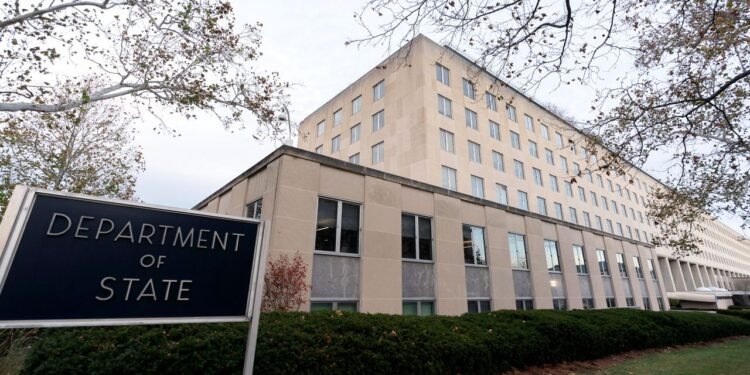The State Department’s air quality program eventually became an example of a smart, efficient diplomacy that boosted American soft power while bringing about real-world changes. “I’ve never seen an initiative of the US government have such an immediate, dramatic impact in a country,” Gary Locke, a former US ambassador to China, told the Washington Post back in 2013. The project was so successful that it was featured on the website of the National Museum of American Diplomacy.
Before it was suddenly killed, State Department officials, researchers, and the public could view the international air quality data collected from US embassies on AirNow, a database maintained by the EPA, as well as on ZephAir, an app designed by the State Department to help US diplomats abroad. The former webpage has been made unavailable; the app showed that at least half a dozen embassies stopped reporting regular data in the middle of Tuesday before the function was completely disabled on Wednesday, according to tests performed by WIRED.
Westervelt, who describes the DOSAir as “a bedrock of international air quality work,” says he previously received grants from the State Department to help expand the program in Africa. He says he became worried about its fate when he learned last week that his grants had been terminated along with thousands of others at the State Department and the United States Agency for International Development.
Diplomatic Triumph
By the end of 2011, the air monitoring program was having its big moment of public recognition in China. Pollution got so bad in Beijing that the city had to close its airport. The State Department’s bot was blasting “crazy bad” readings on Twitter again, but the official Chinese government figures said the air was only “slightly polluted.”
The Chinese public, however, decided to trust the US embassy’s number. Many people voiced their disappointment on social media and pushed the government to take action to clean up the air. It became “an environmental awakening akin to the London Fog,” says the former US diplomat. In a twist that’s almost incomprehensible today, the Chinese government even officially adopted the US State Department’s method for reporting air quality. It also made significant efforts to clean up air pollution, and collaborated with the EPA on climate and environmental issues.
The DOSAir program was welcomed in many other countries as well, especially those that didn’t have an existing infrastructure to collect air quality data, says Westervelt. In some cases, local governments used the high-quality data collected at US embassies to calibrate readings on their own lower-cost air monitors.
For these countries, ending support for the air quality monitoring program could hinder their progress cleaning up the air, says Westervelt. “You can’t really mitigate the air pollution problem unless you have quantitative evidence,” he explains. “Losing it is a pretty big blow.”
Clear Economic Winner
Over the past month, the Trump administration has slashed funding and staff across the federal government as part of a cost-cutting initiative led by Elon Musk’s so-called Department of Government Efficiency (DOGE). But the air quality monitoring program isn’t very expensive for the US State Department to maintain. Westervelt estimates it costs just tens of thousands of dollars a year because most of the monitoring equipment has already been purchased, and the main expenses are associated with maintenance.
The program demonstrated how relatively low-cost information technologies could be used to spur substantial reductions of air pollution, says Akshaya Jha, an assistant professor of economics and public policy at Carnegie Mellon University who co-authored the 2022 study. When a US embassy began publishing the readings in a city, he says, it often raised public awareness about pollution and put pressure on the host country to take action to clean up the air. Jha found that local Google searches for the term “air quality” steadily increased after monitors were installed. Air pollution levels, estimated by satellite measurements, also dropped.
In the long run, Jha’s research also found that the program actually saves money for the State Department, which is required to pay diplomats extra compensation for living in more hazardous environments. “Our estimates indicate that the monitors save the median embassy roughly $34,000 a year in this kind of hardship payments,” Jha says.
Even beyond the hardship compensation, creating a world where fewer people are dying from diseases linked to air pollution would reduce the need for things like costly medical treatments. “In terms of benefits of this program relative to its costs, It’s a clear winner,” Jha says.









